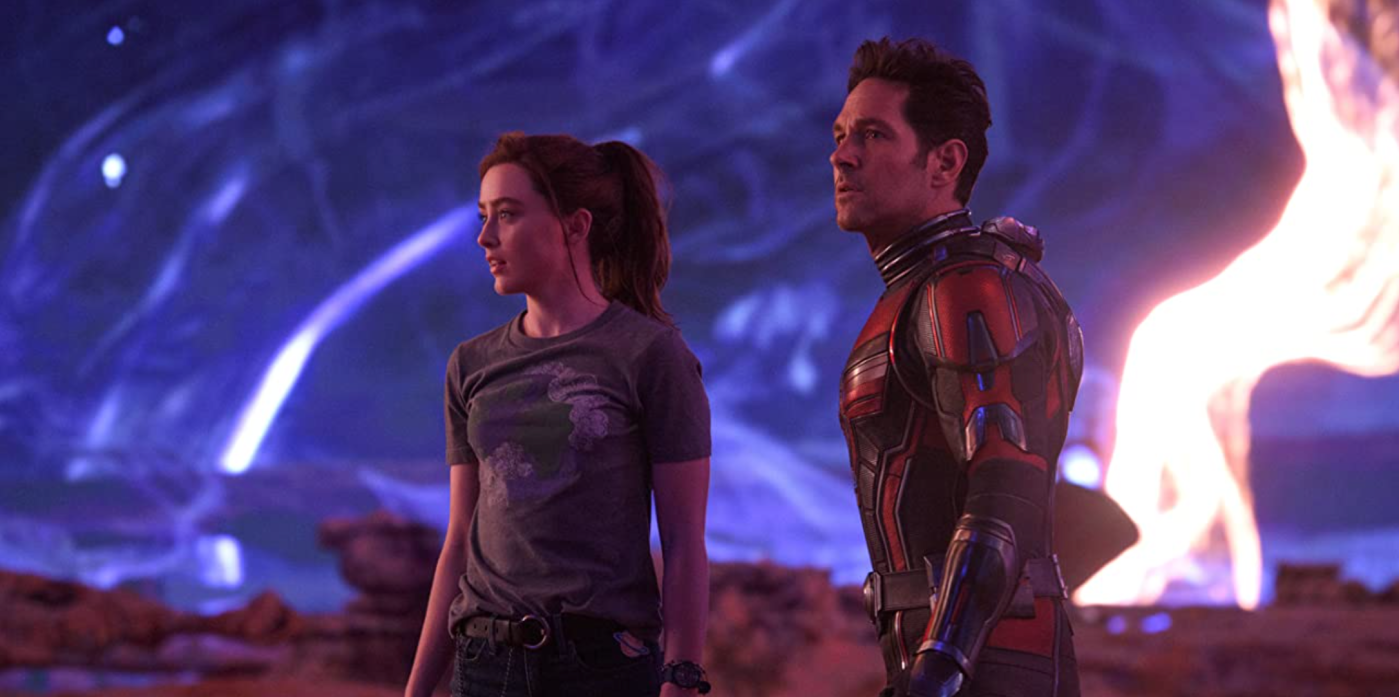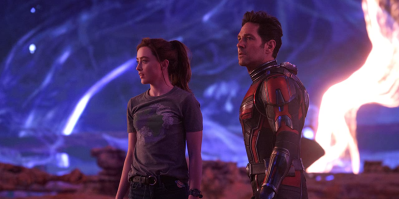Ant-Man has long been considered a B-list hero in the Marvel Cinematic Universe. Ant-Man and the Wasp: Quantumania will do nothing to repair that reputation.
The third standalone Ant-Man film brings us back to Scott Lang (Paul Rudd) enjoying the easy life as a semi-retired superhero who is universally praised, if not universally remembered, for his role in reviving half the life in the universe after Thanos destroyed it with the Infinity Gauntlet. Lang has fans, an autobiography, and a wealthy, high-powered girlfriend and partner in heroics, Hope van Dyne (Evangeline Lilly). He also has a precocious 18-year-old daughter, Cassie (Kathryn Newton), whose interest in the quantum realm that trapped her father and Hope’s mother ends up inadvertently notifying a malevolent quantum being of their location.
From there, Scott, Hope, and Cassie are all transported into the quantum realm with Hope’s two retired-superhero parents, Janet van Dyne (Michelle Pfeiffer) and Hank Pym (Michael Douglas). The crew then discovers a hitherto unknown world ruled with an iron fist by Kang the Conqueror (Jonathan Majors), a one-time ally of Janet’s whom she accidentally helped to power and then spent 30 years fighting.
All of that is the setup. What comes next is a letdown for longtime Marvel fans and casual viewers alike.
Ant-Man and the Wasp: Quantumania struggles under the weight of its own complexity and deference to the past and future of the Marvel Cinematic Universe (MCU). To fully grasp what’s going on you need to have seen, at the very least, Ant-Man, Ant-Man and the Wasp, Captain America: Civil War, Avengers: Infinity War, Avengers: Endgame, and the Loki TV series on Disney+. On top of that, the latest Ant-Man installment is charged with setting up the next phase of the MCU, in which Kang and his multiverse domination aspirations will serve as the overarching story.
All of this business leaves little room for the film’s protagonists. The father/daughter relationship between Scott and Cassie provides the emotional heart of the film and … everyone else is just kind of there. One could remove Michael Douglas from the film entirely and nothing would change. But Scott and Cassie’s relationship is thinly written, with typical “absent father trying to make up for lost time” and “progressive daughter misunderstood by father” fare. And the film’s plot is just as lacking as its character development. Deus ex machinas abound, and the ultimate triumph of the good guys owes far more to coincidence and outside forces than anything done by the protagonists.
Paul Rudd gamely tries to make up for the absurd, overblown plot with his characteristic charm, and Michelle Pfieffer and Jonathan Majors show in every scene that they’re the best actors on the set. But even an all-star cast cannot save the movie. Add to that the middling special effects for which the creative team clearly owes a great deal of its inspiration to Rick and Morty, and there is little to recommend the film. It falls flat, with none of the energy that Rudd has brought to the role in the past.
In an attempt to add some more fun to their post-Phase 3 movies, one of Marvel’s go-to tools has been throwing mountains of fan service into their films. There’s MODOK! And Rama-Tut! And Krylar! But as Ant-Man and the Wasp: Quantumania serves to remind, the best way to serve fans is to give them a good product. And in this film, alas, Marvel has not.







Please note that we at The Dispatch hold ourselves, our work, and our commenters to a higher standard than other places on the internet. We welcome comments that foster genuine debate or discussion—including comments critical of us or our work—but responses that include ad hominem attacks on fellow Dispatch members or are intended to stoke fear and anger may be moderated.
With your membership, you only have the ability to comment on The Morning Dispatch articles. Consider upgrading to join the conversation everywhere.